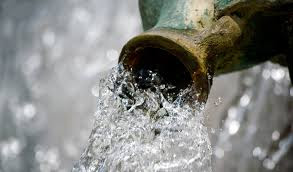A Water from the Well blog post, Hayyei Sarah
Written by Rabba Kaya Stern-Kaufman

Our portion begins just after the story of the binding of Isaac. Several Rabbinic misdrashim relate a direct connection between these two events. Rashi sums it up this way (on Gen. 23:2): The death of Sarah is narrated directly after the Akeidah, because through the tidings of the Akeidah, that her son had been made ready for sacrifice and had been all-but slaughtered, her soul flew away, and she died. She dies from the sudden awareness of kime’at shelo nishchat. He had “as if ” been slaughtered by his father.
With this in mind one might ask, why is this next Torah portion called Hayyei Sarah- the life of Sarah- when it begins by recounting her death? Aviva Zornberg, a contemporary Bible scholar, explains that this entire Torah portion is dealing with the question of Sarah’s life as Isaac’s legacy. Isaac, her son, is caught up not only in the aftermath and trauma from being bound on the altar by his father, but from his entanglement in the death of his mother. He needs to be freed from his mother’s pain and return to his own life.
It seems Abraham understands this on some level and though the Torah portion begins with grief, it moves quickly into the resumption of life for both Isaac and for Abraham. Abraham is seized by a mission to find a suitable wife for his son. And Abraham himself takes a new wife, Keturah, whom the commentators claim is really Hagar. There is movement toward resolution, toward the healing of family relationships and a new future for the family. In Gen. 24:67 the Torah recounts of the union between Isaac and Rebekah, “Isaac brought her into the tent of his mother Sarah, and he took Rebecca as his wife. Isaac loved her and thus found comfort after his mother’s death.”
The parashah then concludes with the genealogy of Avraham, a list of births and begats.
One of the many themes that bubbles through this Torah portion is the quality of chesed-lovingkindness. We see the word many times in Eliezer’s prayers that God act with lovingkindness toward Abraham. And we see it in the actions of Rebekah, who spontaneously brings water to Eliezer and his camels after their long desert journey. The waters of kindness restore life to this broken family.
Many of us have suffered tragic losses throughout this past year. The grief we feel remains with us, to a greater or lesser degree. This week our Torah reminds us that the gifts of kindness we give and receive may open up a way forward. To be seen in our struggles and responded to with any act of kindness is a powerful balm. Such gifts are simple, yet deeply felt and appreciated. It could be as simple as a phone call, a card, a cup of coffee. It is not really the water or the coffee that restores, it is the waters of kindness, the gestures of caring that can heal and restore the heart. As a community of heart, may we all continue to deepen our practice of lovingkindness by reaching out to one another with a warm and supportive hand.